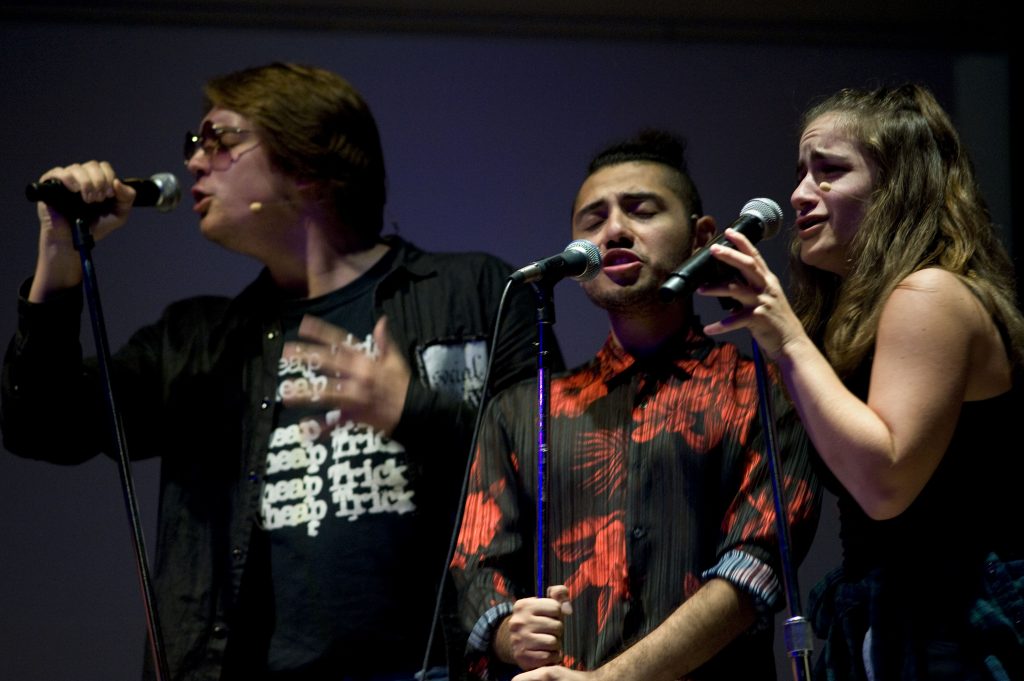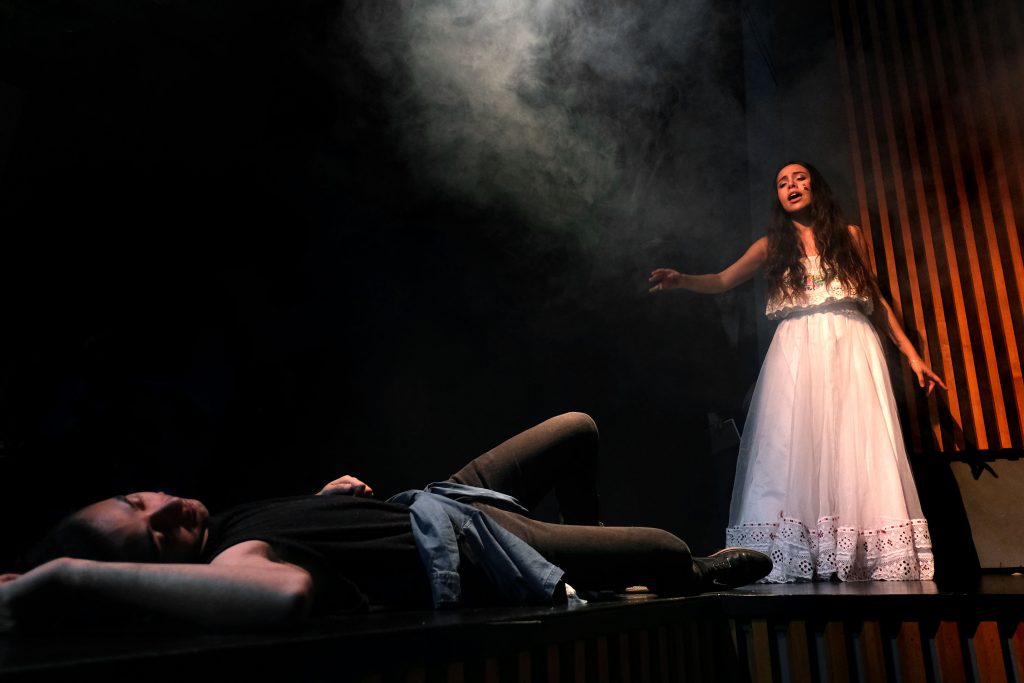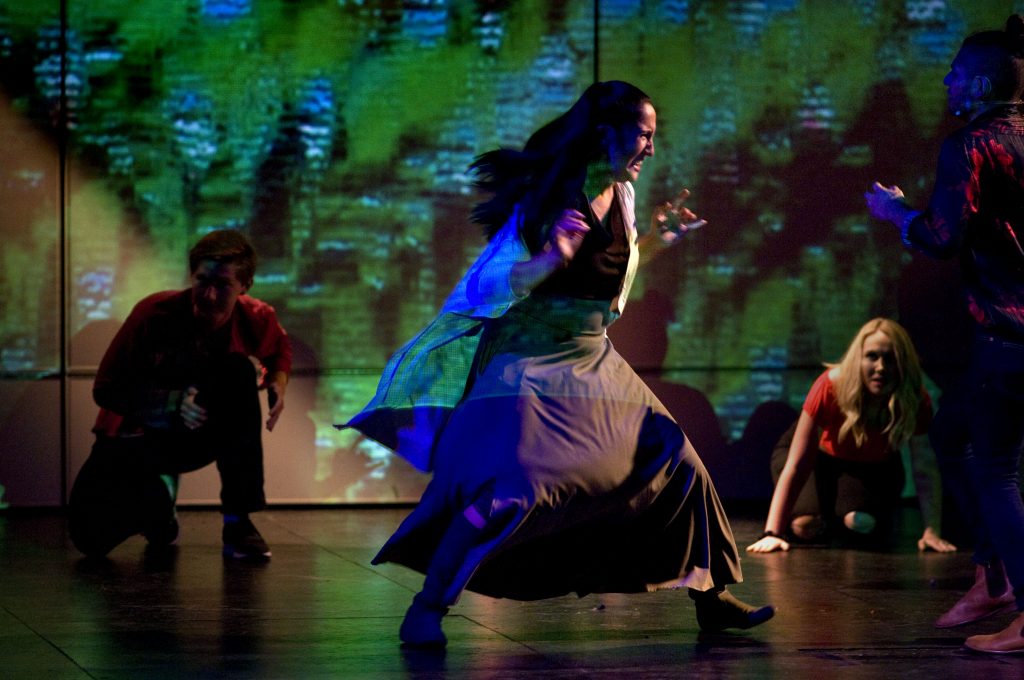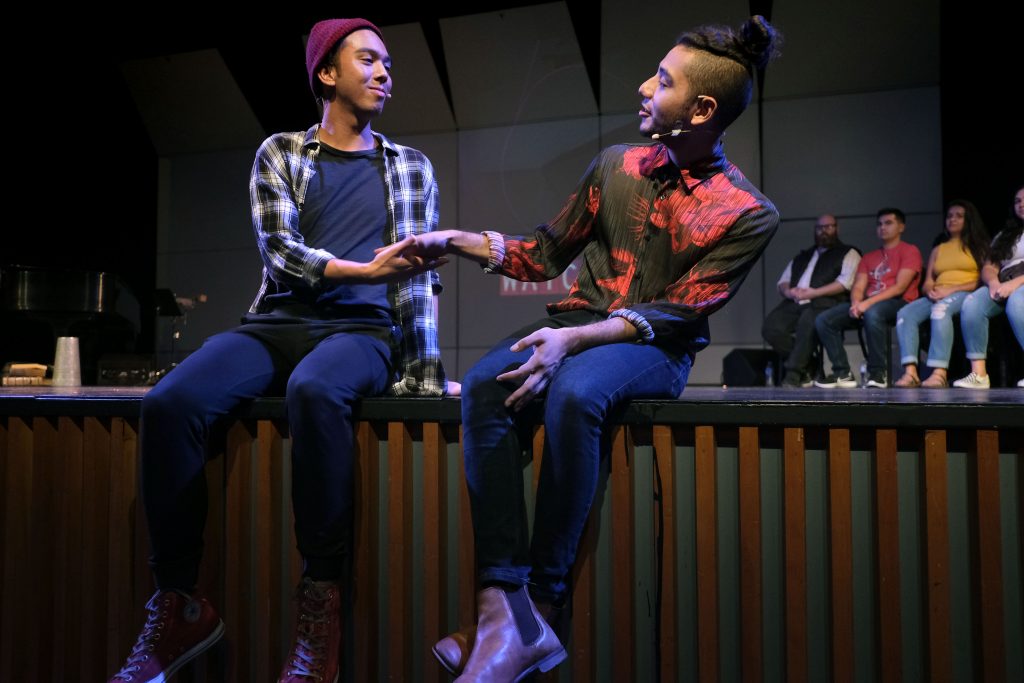The Mystical and the Political Realms Collide in Waters’ New Border Opera ‘El Colibrí Mágico’
Before the curtain of Sunday’s premiere of Joseph Martin Waters’ opera El Colibrí Mágico, I asked the composer how long he had been working on or living with his opera. “About five, maybe six years,” he answered.
I first encountered his opera in March, 2017, in a concert at San Diego State University’s Smith Auditorium, where Waters presented several semi-staged portions of his opera in progress with singers from the then nascent San Diego City Opera company. Only at that time the opera was titled St. Francis de los Barrios. In April of this year, more sections of the opera appeared in another Smith Auditorium concert, only by this time the opera had become El Colibrí Mágico (The Magic Hummingbird), and the title character Francisco had been changed from a Tijuana-based sex worker to an undocumented Latino teenager who lives in San Diego and sings in a three-person rock group.

Jackson Shaffer, Rodolfo Giron & Cat Rojo [photo (c.) David Maung]
In the first act we follow Francisco, sung by the poised, resonant countertenor Rodolfo Giron as he is pursued by visions from the spirit realm, including the forceful curandera Maria Sabia sung by soprano Karen Garcia. Because these visions detain him as he attempts to meet up with his two Anglo band members Clara and Franklin for a gig the trio has in Tijuana, he misses their performance at a club full of cavorting San Diego area college students. Eventually Francis finds his friends and also encounters his love interest, the fey but wise Elias.

Rodolfo Giron & Karen Garcia [photo (c.) David Maung]
Because Waters’ Francisco represents his attempt to retell the life of St. Francis of Assisi in a contemporary context, we trust that something redemptive will happen in the opera’s second half, but on Sunday we were sent out into the cool of the evening after the end of Act One with only our imagination to assuage our expectations.

Sonya Schummann [photo (c.) David Maung]

Gabriel Igtanloc & Rodolfo Giron [photo (c.) David Maung]
Waters’ ensembles are the weak link in an otherwise confident score. When the denizens of the refugee camp sang their earnest, slightly martial anthem “Who Will Win? I thought we had accidentally transitioned into a rehearsal of Les Miz.
Lauren Haughton took on the challenging role of stage direction faced with no set: just a bare stage occupied only by rows of chairs and no scenery, save for projections adroitly designed by Scott Boynton. For the most part, Haughton made good choices, although her choreography, especially the exotic ritual dance of Apollonia’s acolytes, exhibited more than a touch of inspiration. I was puzzled, however, how an early scene of college students, played by actual SDSU college students, appeared so awkward and stilted in the Tijuana club where they are supposed to be having such a raucous good time.
Richard Morrison confidently conducted the chamber ensemble placed at the far stage right. He was fortunate to have Joseph Martin Waters’ own SWARMIUS ensemble as half of the group: saxophones Todd Rewoldt and Ian Buss; pianist Geoffrey Burleson, and vibraphone player Daniel Pate. They have played the composer’s compositions for years, and from them his eclectic, ingratiating music flows like a mighty stream. SWARMIUS was augmented by percussionists Jeffrey Mossier and Donovan Newkirk, guitarist George Svoboda, and bassist Harley Magsino.
Joseph Martin Waters was responsible for the music and lyrics of El Colibrí Mágico. The book was a joint effort of Waters, Michael Gillis, and Gustavo Alcoser.
“El Colibrí Mágico” was presented by the New West Evolving Arts and Music Organization on October 13, 2019, in San Diego State University’s Smith Recital Hall.

Ken Herman, a classically trained pianist and organist, has covered music for the San Diego Union, the Los Angeles Times’ San Diego Edition, and for sandiego.com. He has won numerous awards, including first place for Live Performance and Opera Reviews in the 2017, the 2018, and the 2019 Excellence in Journalism Awards competition held by the San Diego Press Club. A Chicago native, he came to San Diego to pursue a graduate degree and stayed.Read more…

Once again reading Ken’s reviews from my self-imposed exile in Asia makes me wish that I were back in San Diego. How thrilling the music scene the music scene there now seems. The musical offerings here in Bangkok pale in contrast.